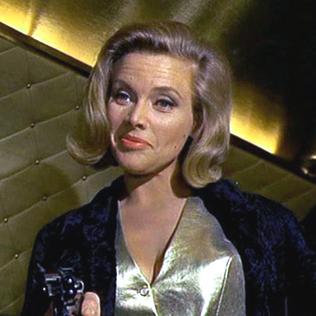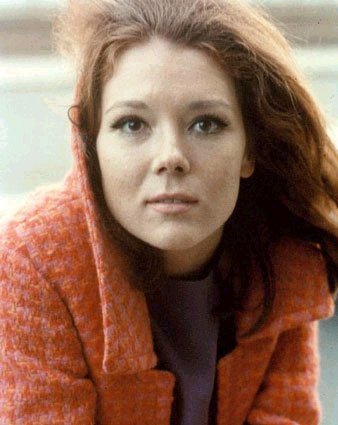 "The name is Bond, James Bond."
"The name is Bond, James Bond."Not to say that the James Bond films have been a major cultural force, you'll be hard pressed to find anyone, from the streets of Kansas City, to the guano filled caves of Borneo, who doesn't know that line and where it comes from.
It's the signature intro of the ultra-suave super-spy Agent 007 who is on his sixth actor in what's the longest running and most successful film franchise in movie history.
But what is behind the world's greatest fictional spy and why does he still have so much power over pop-culture?
Well, it's a tad complicated, but like a good Bond movie, it's got the makings of an interesting ride.
 James Bond was the brainchild of an expatriate British newspaperman with a taste for martinis, cigarettes, and "other men's wives" named Ian Fleming. Fleming left journalism in WW2 to become a naval commando and intelligence officer under legendary Canadian master-spy William "Intrepid" Stephenson.
James Bond was the brainchild of an expatriate British newspaperman with a taste for martinis, cigarettes, and "other men's wives" named Ian Fleming. Fleming left journalism in WW2 to become a naval commando and intelligence officer under legendary Canadian master-spy William "Intrepid" Stephenson.However, post-WW2 Britain was not exactly a happy place for war heroes. Tens of thousands of men, women and children were dead, cities were in ruins being slowly rebuilt, the economy was in a shambles, the British government was crippled with massive war debts (not fully paid off until the 1990s) and a general sense of social ennui born from sheer exhaustion after 6 years of brutal warfare. The British Empire was no longer sustainable, and one by one, each of her foreign possessions gained their independence.
The newspaper business was also suffering, beset
 by constant strikes, financial troubles, and layoffs. Fleming was offered a position as an editor of a newspaper in Jamaica. The money wasn't very good by British standards, but the cost of living in Jamaica was much less than London, and the sunny island wasn't still under Britain's strict wartime rationing regulations.
by constant strikes, financial troubles, and layoffs. Fleming was offered a position as an editor of a newspaper in Jamaica. The money wasn't very good by British standards, but the cost of living in Jamaica was much less than London, and the sunny island wasn't still under Britain's strict wartime rationing regulations.Ensconced in a seaside house he christened Goldeneye, Fleming enjoyed some success as an editor, but he would soon enjoy greater success as a novelist with his creation of James Bond.
Bond was Fleming's response to Britain's dwindling position in the world, from the lone superpower, to just a Great Power, and then after WW2 to second banana to the USA. He wanted to show, if only to himself, that Britain still had power, even if it came in the form of a lone man.
 Fleming made Bond partially as he saw himself, intelligent, sophisticated, and skilled in just about everything, and like Fleming, an old Tory with a strict, if a tad unconventional, moral code, and an undying loyalty to Queen and Country to the death.
Fleming made Bond partially as he saw himself, intelligent, sophisticated, and skilled in just about everything, and like Fleming, an old Tory with a strict, if a tad unconventional, moral code, and an undying loyalty to Queen and Country to the death.But Bond is also a bit monstrous. He's a bit of a sociopath, killing without remorse*, a ruthless seducer who rarely feels any real connection to the women in his life, and if he has any friends or life outside of his work, you never hear of them.
Now some say that Bond's ruthless streak comes from an incident in Fleming's own life where he was sent by Intrepid to kill a man at Toronto's Royal York Hotel.
Fleming confronted the man, but couldn't pull the trigger on an unarmed man. It turns out that the gun was loaded with blanks, and the whole "mission" was just a drill, but many say that Fleming felt like a failure for not pulling the trigger. So he made his creation with chillier blood than a snake in a deep freeze.
While that theory probably has some merit, I tend to think that there's more to it.
Bond is a classic tragic knight based on sacrifice for the greater good. He has sacrificed his humanity and become a weapon. He is dedicated to preserving a peaceful, law abiding society that he can never be a part of.

Family, a home, and 2.5 kids just aren't in the cards. If he doesn't die in action, he will die alone and he knows it because the two attempts he has at true love Vesper Lynde and Tracy Draco-Bond both end in tragedy.
There will be no Quantum of Solace for Mr. Bond. (MGM should pay me for that little product placement.)
Which brings me to the the next topic.
Ian Fleming invented product placement.
Fleming was a writer whose style was based on presenting carefully constructed details to illustrate time, place, and character. He wasn't shy about using brand names either. One day, as legend goes, Fleming was given a case of expensive whiskey, because the distiller noticed that Bond drank some in one of the novels.
It was soon after that incident that Bond's tastes went from sophisticated to extravagant. Leading to Fleming getting lavish gifts from manufacturers happy for the advertising in the wildly popular novels.
 Fleming also wasn't above impish humour, planting puzzles in the names of characters: Vesper Lynde (divided like West Berlin) Goldfinger (an old Anglo Saxon unit of currency) and my personal favourite Pussy Galore, the leader of an all-lesbian flying circus. Ms. Galore's name was intended as a prank on his editors, Fleming expected them to freak out, but they didn't, and a classic character made it into print, and onto the big screen.
Fleming also wasn't above impish humour, planting puzzles in the names of characters: Vesper Lynde (divided like West Berlin) Goldfinger (an old Anglo Saxon unit of currency) and my personal favourite Pussy Galore, the leader of an all-lesbian flying circus. Ms. Galore's name was intended as a prank on his editors, Fleming expected them to freak out, but they didn't, and a classic character made it into print, and onto the big screen.After a couple of false starts on TV, Bond clicked with audiences on the big screen with the premiere of Dr. No, creating a whole new genre of over-the top action thriller.
Now folks wonder how an essentially right-wing, snobby, sexist, egocentric sociopath could connect with audiences the world over.
It's an emotional connection that operates on many levels. During the Cold War, and now in the Age of Terrorism people need to see a hero who fights the bad guys and wins against what seem impossible odds. It's the cinematic equivalent of comfort food. People want to feel that there is someone out there willing to fight for them in times of uncertainty and strife. Even if he is a bit of a bastard, he's our bastard.
Bond is also an aspirational figure, especially for men.
What man doesn't want to be as cool, confident, sophisticated, as appealing to women, as James Bond. And lets not forget the cars. I'm a terrible driver, but I still want the Bond cars.
Now we're seeing Bond being re-imagined, more along the lines of the original Fleming novels, which I think is great. I enjoyed Casino Royale, and I must admit that I'm looking forward to A Quantum of Solace. In fact, I think Eon Productions should redo the entire novel series, updating the plots to the current world situation full of terrorists, oligarchical conspiracies, and sinister organizations operating in the shadows. Plus they should bring back SPECTRE, because I've always thought Blofeld was bad-ass.
But maybe that's just me.
If you don't mind, my martini shaker is waiting for me.
*Bond commits the first "cold-blood" killing by a movie hero in Hayes Code Hollywood cinema in Dr. No where he kills a disarmed assassin and then calmly goes on with his business.
____________________

"Ian Fleming invented product placement."
ReplyDeleteDickens often gets the credit for that, but there are examples going back much further:
https://www.entrepreneur.com/tradejournals/article/162470371_2.html
On the other hand, you can argue that product placement was more central to Fleming's work than it was to earlier writers'.
Ian Fleming was probably the most deliberate product placer in the 20th Century, and probably got the most reward from it, thanks to his character's global popularity and expensive tastes.
ReplyDeleteMost authors of his era probably thought such crass commercialism was beneath them. But not Ian.